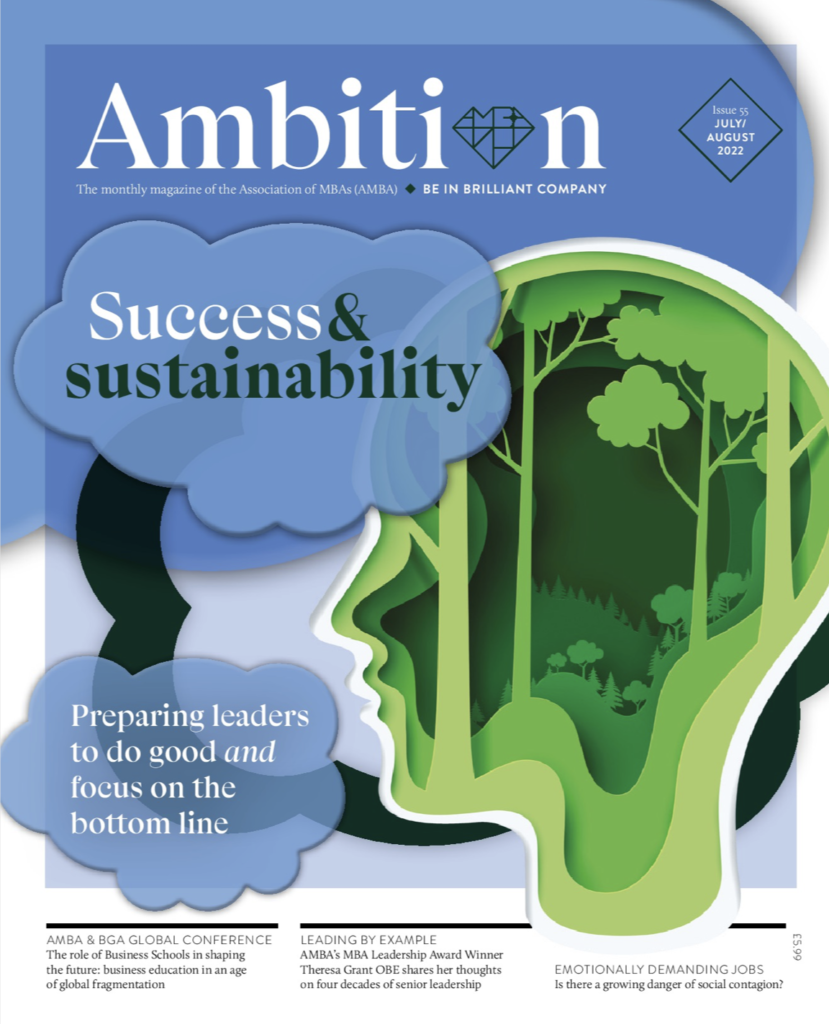
Addressing the plight of the student caregiver
A look at how Grenoble Ecole de Management aims to support students who are also caregivers. By Tim Banerjee Dhoul


For all business schools, student and staff wellbeing has been at the epicentre of strategic focus since the start of the pandemic.
Karen Spens, Rector of Hanken School of Economics in Helsinki, Finland, presented a session at the AMBA & BGA Global Conference 2022 in which she explored how business schools have confronted the challenges posed by the Covid-19, addressing the needs of students, and finding out why putting student wellbeing at the core of any business school agenda is the only recipe for success.
“Student wellbeing has been a topic at the top of our heads for the past number of years. At Hanken, in 2019, our students were pretty happy, but in 2020 we were forced to shut down operations and wellbeing was really negatively affected, so we took action."
“We decided to collaborate with other schools and universities on a national survey to find out how students were feeling across Finland. The idea was to look at wellbeing, what has been done, and how can we collaborate to help our students.”
The survey used text messages to reach students. Participants received a text with six simple questions, and results are still coming in. The questions asked how far respondents agreed with the following:
To date, the study has 2,500 respondents.
“Students were, on average, pretty satisfied with teaching this spring.”
“Most of them were able to complete their studies as planned, but the preference for remote studies varied a lot. Most students reported having enough interaction, but there are plenty that do not have enough social interaction.”
The study found that wellbeing was the most central factor to satisfaction. Those participants with the highest levels of wellbeing were most likely to have completed their studies and expressed satisfaction with their teaching. The study also revealed five student profiles:
Everything is fine: high achieving, high satisfaction; completing their studies as planned; strong preference for remote studies; on average, two years older than the average age in the sample.
In-class preferrers: low preference for remote studies; completing their studies as planned; higher wellbeing than average; on average, two years younger than the average age in the sample.
Underachievers: low goal completion; unable to complete their studies as planned; less satisfied with teaching than average; strongly prefer remote studies.
Satisfied but not well: low wellbeing, high satisfaction; completing their studies as planned; no preference for in-class teaching.
Not well (and representing 30% of the sample): low goal completion; not able to complete their studies as planned; less satisfied with teaching than average; slightly preferred in-class teaching.
“The study revealed students with conflicting preferences.”
“But the narrative that students are not feeling well because the teaching is remote is only partly true. There are many with high wellbeing who would prefer to study remotely. Students with high wellbeing are satisfied with teaching and can complete their studies as planned.
“Engaging students is really important, as is enabling students to combine study with ‘other life’. They’re not asking for more technology, but they are asking for more pedagogical approaches to what they’re doing. Experts who analysed the results reminded us that we have a generation of students shaped by the pandemic, and we cannot go back to the way we used to be. We need new models of thinking.
It’s also concerning that students are feeling worried for their teachers. This is not the way it’s supposed to be. We need to think about work wellbeing and student wellbeing at the same time.
“Wellbeing is something we cannot forget. Things are still not right – and those who need support must be given access to this. If we don’t take wellbeing seriously, technology and pedagogy will not enough for our students to be successful.”

This article has been adapted from one which originally appeared in the July/August 2022 edition of Ambition, the magazine of the Association of MBAs (AMBA).

A look at how Grenoble Ecole de Management aims to support students who are also caregivers. By Tim Banerjee Dhoul

“Now is the time to think differently about how we get teams to perform,” says Black Isle Group CEO Jeremy Campbell. Discover a six-step process to help your people focus on what really matters

Combating loneliness at work requires us to get and stay connected with each other, says the University of Salford’s Lynda Holt, and we can all help create or enhance belonging for those around us
For questions about editorial opportunities, please contact:

